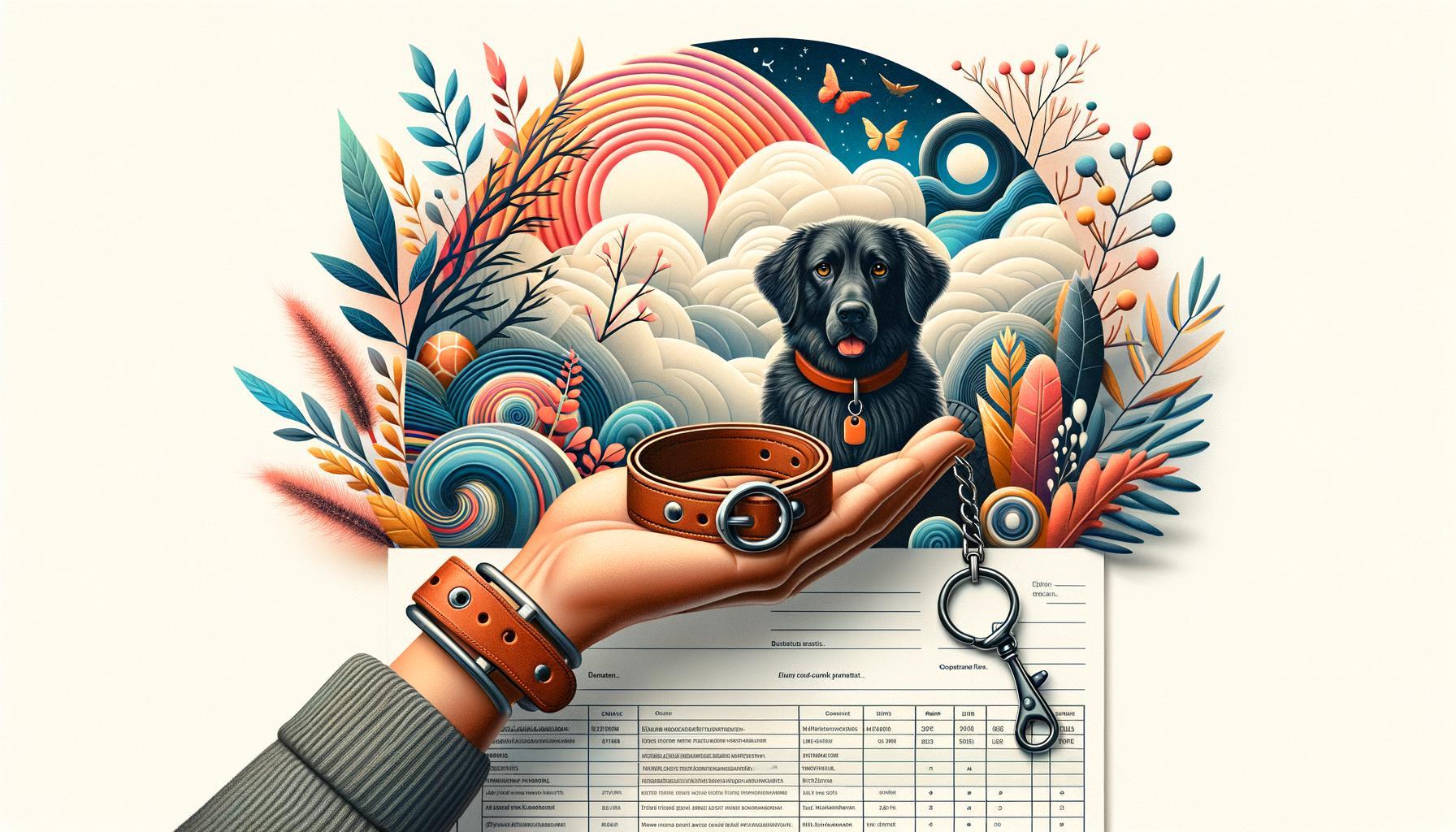Picture this: Your beloved feline companion, with their soothing purrs and gentle gazes, offers a comforting oasis amid life’s chaos. Now, imagine the added peace of mind that comes with registering your cat as an Emotional Support Animal (ESA), turning those daily cuddles into an officially recognized form of therapy. As delightful as it sounds, the process can seem daunting and murky, particularly when it comes to understanding the costs involved. In this article, we’ll unravel the complexities and nuances of the financial aspect, offering you a clear and comprehensive price breakdown for registering your cat as an ESA. So, whether you’re a curious cat lover or someone seeking solace, let’s dive into the dollars and cents that pave the way to a happier, more harmonious life with your furry friend.
Table of Contents
- Understanding Emotional Support Animal Certification
- Cost Components: What Youll Pay For
- Navigating Evaluation Fees and Necessary Expenses
- Budget-Friendly Approaches for ESA Documentation
- Tips for Reducing Out-of-Pocket Costs
- Insights and Conclusions
Understanding Emotional Support Animal Certification
To understand the ins and outs of certifying your feline friend as an emotional support animal (ESA), you need to know the various components involved in the process. This can save you both time and money while ensuring you get the appropriate documentation. The certification typically involves obtaining an **ESA letter** from a licensed mental health professional. This letter must confirm that you have a diagnosed emotional or mental disability and that the animal provides necessary support. The cost for this letter can range from $50 to $200, depending on the provider and whether it’s for housing or travel purposes.
In addition to the ESA letter, some services may offer **optional add-ons** to enhance your certification:
- ID cards for your cat
- Vests and harnesses indicating the animal’s ESA status
- Registering your ESA in a national database
Here’s a quick reference table to help you understand potential costs:
| Item | Estimated Cost |
|---|---|
| ESA Letter | $50 – $200 |
| ID Card | $20 – $30 |
| Vest/Harness | $15 – $50 |
| National Registration | $20 – $75 |
By understanding these elements, you can navigate the certification process efficiently and ensure that your cat becomes a recognized emotional support animal without unnecessary expenditure.
Cost Components: What Youll Pay For
When registering your feline friend as an Emotional Support Animal (ESA), several **cost components** come into play. Firstly, you will need to obtain an **ESA letter** from a licensed mental health professional, which verifies your need for an emotional support animal. The cost of this letter can vary but typically ranges from $100 to $200. Additionally, you’ll want to consider fees for **annual renewals** to keep your registration valid, usually costing around $50 to $100 each year.
Beyond the initial registration expenses, there are other potential costs to anticipate. Some professionals might charge for **additional consultations** or paperwork, and you might find yourself spending on **certified supplies** or **gear** for your cat, such as collars or leashes marked with “ESA.” To help you understand these costs better, here’s a simple table summarizing the main expenses.
| Item | Estimated Cost |
|---|---|
| ESA Letter | $100 – $200 |
| Annual Renewal | $50 – $100 |
| Additional Consultations | $50 – $150 |
| Certified Supplies/Gear | $20 – $50 |
Remember, these costs can vary depending on your location and the specific services you require. It’s always wise to do thorough research and consult with professionals to ensure you’re getting the best value for your investment in your furry companion’s new role.
Navigating Evaluation Fees and Necessary Expenses
When registering your cat as an emotional support animal (ESA), understanding the **evaluation fees** and **necessary expenses** is key to managing your budget. Typically, the first cost you’ll encounter is the professional evaluation. This evaluation, conducted by a licensed mental health professional, is crucial for obtaining an ESA letter, and its cost can range from $50 to $200. Additionally, you might need to budget for regular **vet visits** to ensure your cat is in good health, as well as any needed **vaccinations** and preventative care treatments, which could add another $100 to $300 annually. These evaluations and medical expenses are foundational, ensuring both your well-being and your cat’s.
Beyond medical assessments, there are often **administrative fees** associated with registering your ESA. Some registration platforms, while not legally required, may offer benefits such as inclusion in a national directory and personalized ESA ID cards, costing about $70 to $100. Other essential expenses might include:
- Pet Deposit Fees: Some landlords may require deposits, though many waive them for ESAs.
- Travel Fees: Airlines may have specific fees for onboard pets, which are waived by proving ESA status.
Here’s a quick breakdown of other potential costs:
| Expense | Estimated Cost |
|---|---|
| Therapist Evaluation | $50 - $200 |
| ESA Registration | $70 – $100 |
| Vet Visits & Care | $100 – $300 annually |
Budget-Friendly Approaches for ESA Documentation
For individuals seeking cost-effective solutions while filing for an Emotional Support Animal (ESA) designation, there are several methods to reduce expenses without compromising on quality. Opting for **online platforms** that offer free preliminary screenings is a great start. Some websites even provide sample letters that you can take to a licensed mental health professional for validation. Additionally, seeking support from **non-profit organizations** can significantly cut costs as they sometimes offer discounted or pro-bono services for those in need. Don’t forget to compare prices between online and local clinics as well; sometimes local services are more competitive.
Here are a few budget-friendly strategies to consider:
- **Use insurance**: Check to see if your visit to a mental health professional can be covered under your health insurance policy.
- **DIY Documentation**: Create your own documentation templates and have them verified by a licensed mental health professional.
- **Discount Codes**: Search for promotional codes online that can reduce the cost of your ESA letter.
- **Community Clinics**: Visit community health centers offering mental health services at sliding scale rates.
| Service Type | Potential Cost (USD) |
|---|---|
| Online ESA Letter | 50-150 |
| Local Clinic Consultation | 80-200 |
| Insurance-Covered Visit | 20-50 (Co-Pay) |
Tips for Reducing Out-of-Pocket Costs
Reducing out-of-pocket costs when registering your cat as an emotional support animal can be made easier with a few strategic moves. First, **consider opting for online certification services**, which often offer better deals compared to in-person consultations. Comparing several services can help you discover hidden offers, discounts, or package deals that could save you a significant amount. Additionally, look for **bundled packages** that provide not only the registration certificate but also other essential items like vests, ID tags, and even personalized letters for landlords or airlines.
Apart from seeking affordable certification services, explore potential **insurance benefits** and **employer assistance programs**. Some health insurance policies and corporate wellness programs cover aspects of registering and maintaining an emotional support animal. It’s worth checking if your policy offers such benefits to lighten the financial burden. Furthermore, **non-profits and local community programs** sometimes offer financial assistance or subsidized rates for individuals who need emotional support animals, so keep an eye out and do your research in your local community.
| Options | Potential Savings |
|---|---|
| Online Certification Services | Up to $100 |
| Bundled Packages | Save 20%-30% |
| Insurance Benefits | Varies by policy |
| Employer Assistance Programs | Varies by employer |
| Community Programs | Subsidized rates |
Insights and Conclusions
And so, we arrive at the end of our journey through the maze of costs involved in registering your feline companion as an Emotional Support Animal. From the certification fees to the inevitable, albeit occasionally rewarding, vet visits, each step forms a constellation of choices and expenses that, when combined, can illuminate your path toward a more comforting bond with your cat.
As you weigh each expense and measure the value it brings, remember that the ultimate reward is the unwavering support and unconditional love that your cat provides. By understanding the financial landscape, you place yourself in a better position to navigate it with confidence, ensuring your furry friend can continue to offer solace and joy in your life.
With eyes now wide open to the fiscal facets of this endeavor, you are better equipped to make decisions that align with your needs and circumstances. May your journey be filled with purrs of contentment and the reassuring presence of your devoted emotional sidekick.







Leave a Reply